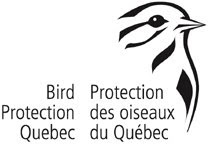November 5
Lecture starts at 19h30 at Knox Crescent Kensington and First Presbyterian Church 625 Godfrey Avenue, Montréal in NDG
Woodpeckers and Deadwood
Recently Burned and Old Forests in the Boreal Ecosystem: Key Interactions for the Maintaining Biodiversity with Pierre Drapeau, professor, Département des sciences biologiques, Université du Québec à Montréal.
Loss of old growth forests in different ecosystems affects several bird species particularly those associated with decaying and deadwood. Among them, hole-nesting birds, particularly woodpeckers are considered keystone species given their disproportionate influence in providing resources, such as cavities, to many species in forest ecosystems. This presentation looks at the ongoing work conducted on woodpeckers in recently burned and old forests of the boreal ecosystem. It shows their ecological contribution and their relationship with decaying and deadwood both for nesting and foraging.
Pierre Drapeau is professor in conservation ecology at the département des Sciences biologiques of Université du Québec à Montréal. He is also co-chair of the Centre for Forest Research (CFR), a research center that brings together 57 scientists from eleven universities in the province of Québec working in forest ecology and forestry.
His research program investigates wildlife-habitat relationships in managed and naturally disturbed landscapes of temperate and boreal ecosystems covering topics such as habitat loss and fragmentation effects on wildlife populations (birds and mammals), populations dynamics of birds and insects in recently burned forests, and deadwood dynamics and deadwood associates in old growth forests. Applications of his research program deal with integrating knowledge on habitat requirements of wildlife to refine ecosystem-based approaches of sustainable forest management.
He recently co-edited a book on « Ecosystem management in the boreal forest » published at Presses de l'Université du Québec.
Friday, November 02, 2012
Subscribe to:
Post Comments (Atom)





No comments:
Post a Comment